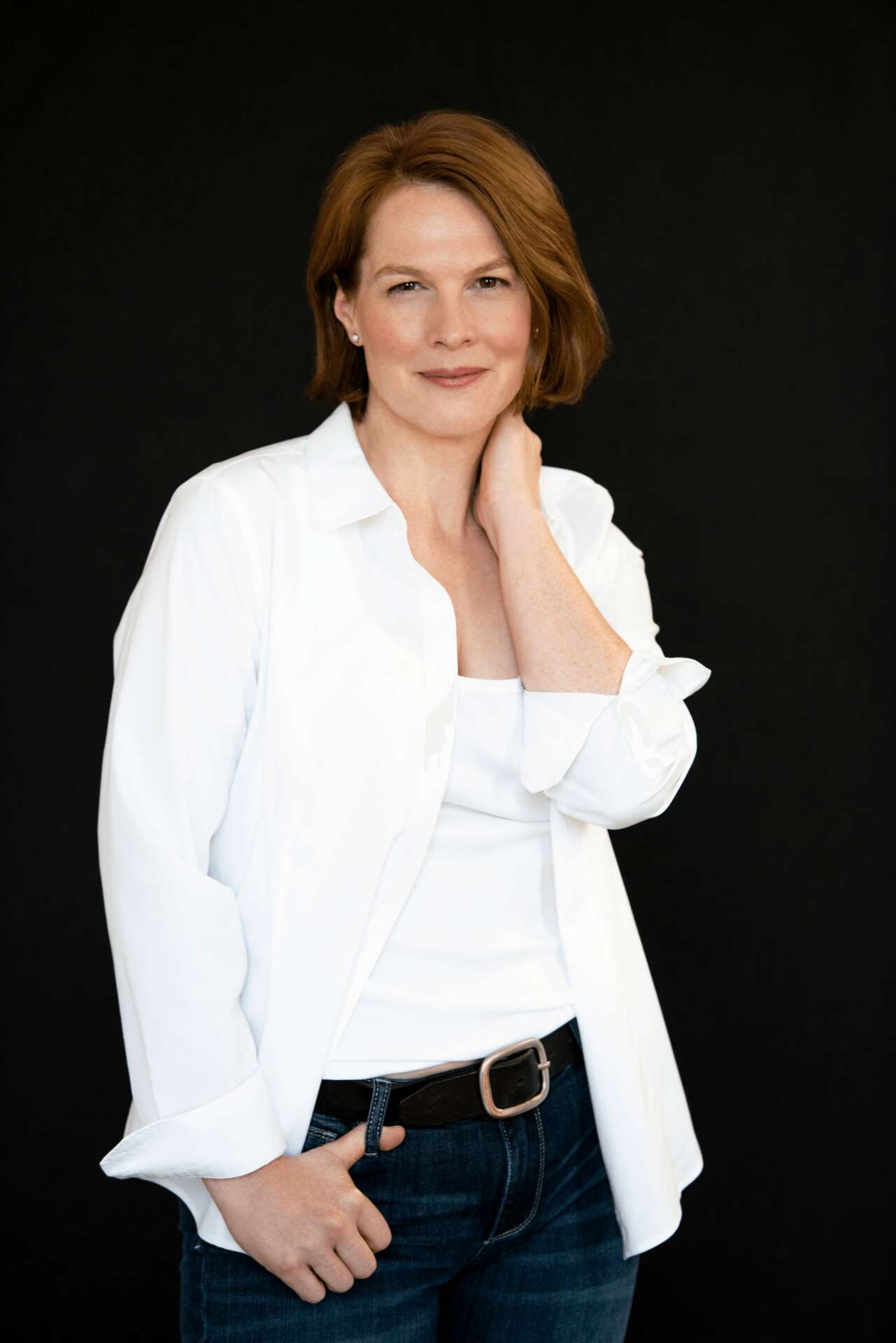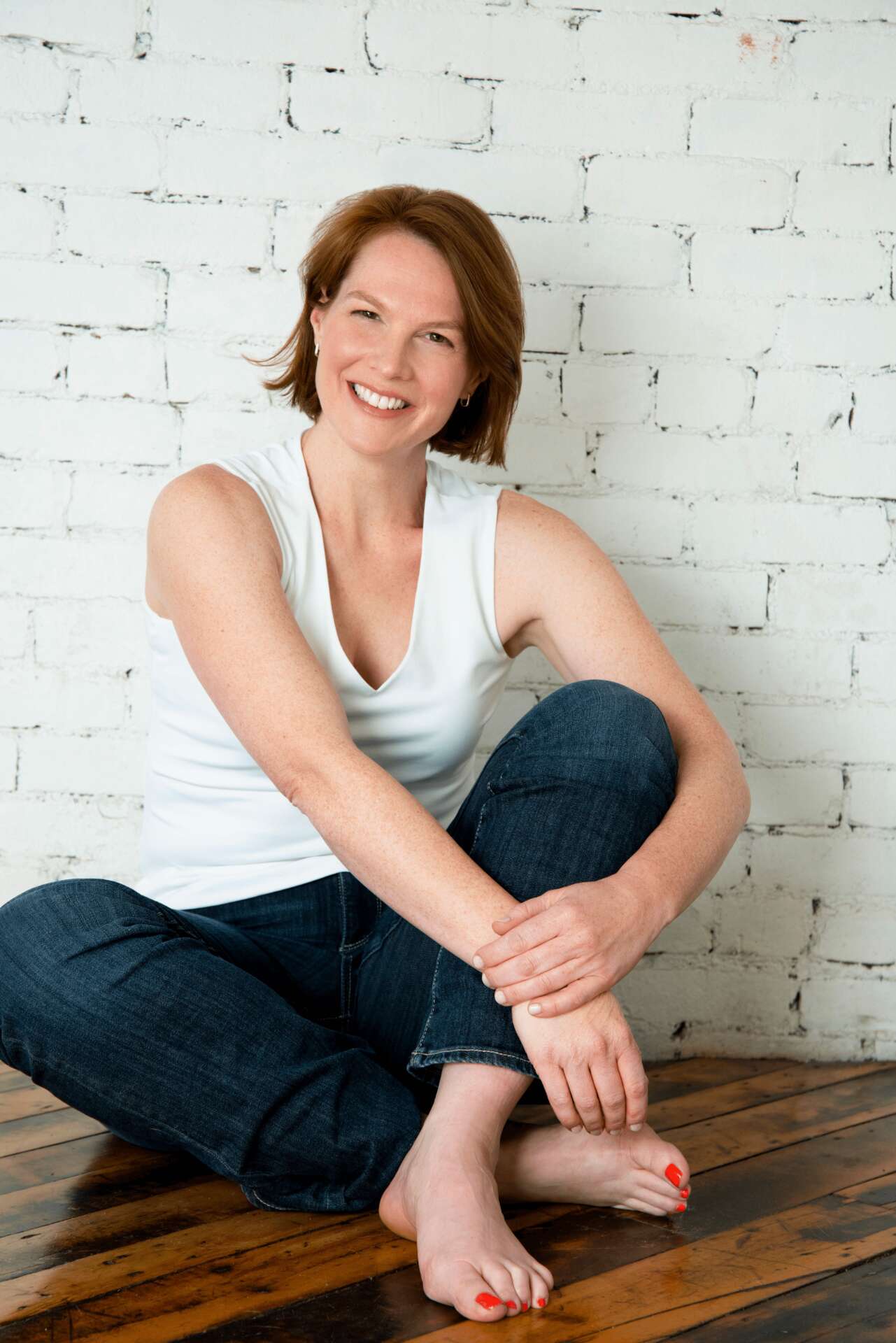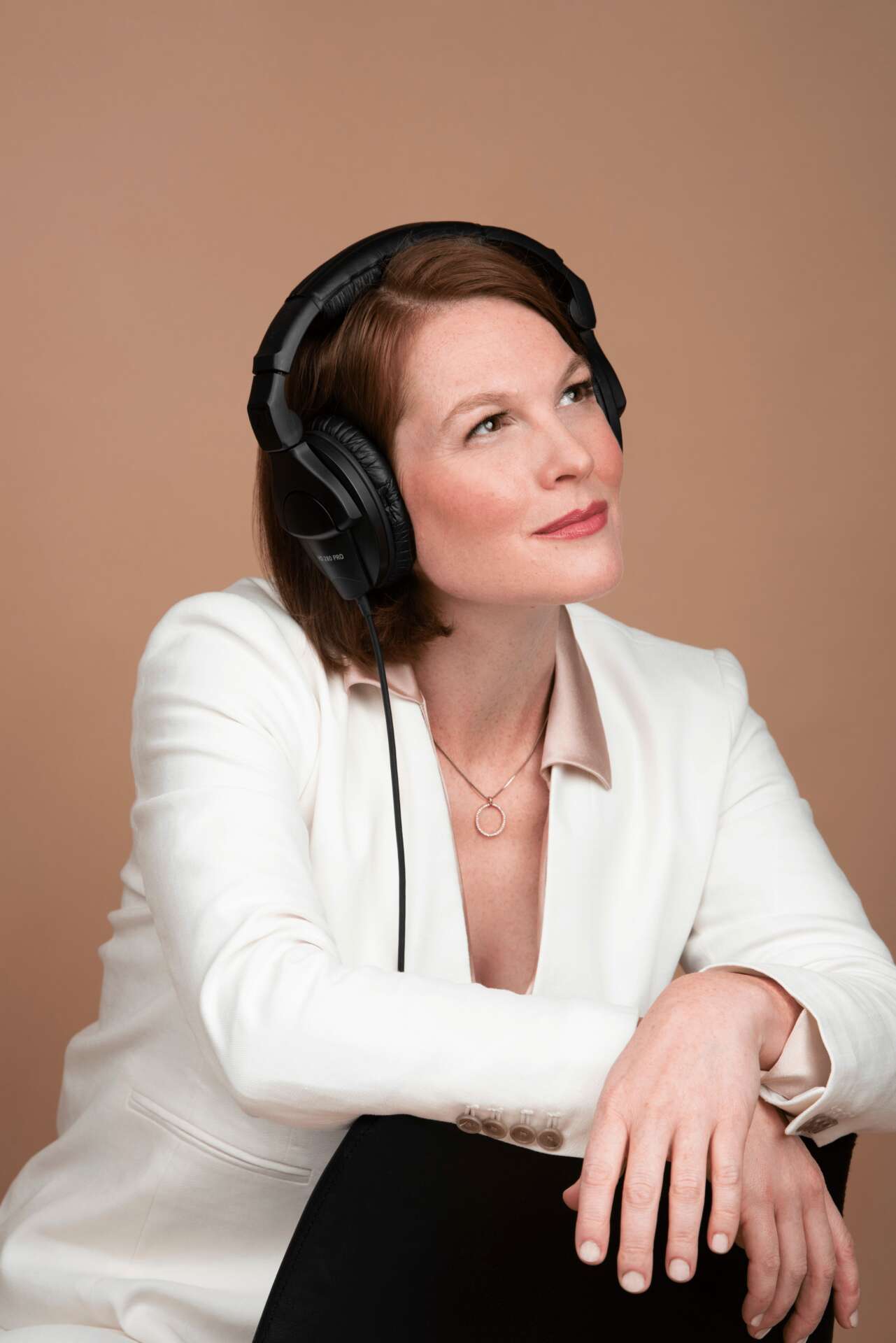We’re excited to introduce you to the always interesting and insightful Erica Brookhyser. We hope you’ll enjoy our conversation with Erica below.
Erica, thanks for joining us, excited to have you contributing your stories and insights. Learning the craft is often a unique journey from every creative – we’d love to hear about your journey and if knowing what you know now, you would have done anything differently to speed up the learning process.
I decided to pursue voice acting after decades of performing professionally as an opera singer. I had many crossover skills since voice acting and opera are both performance-based and voice-related disciplines, but there was also a lot of unlearning I had to do from my years on big stages.
Working in theaters, I had acquired a very articulate and resonant way of speaking that carried in a big hall, but that same approach sounded ridiculous and over-the-top in voiceover. It took me a while to figure out how to sound more like a real person behind the microphone.
With the help of voiceover training, I learned what was keeping me from using my authentic voice in commercials and corporate scripts. Some of the instruction was technical, but a lot of it was about trusting that I didn’t need to over act or over enunciate to get the point across. Once I mastered the voice part, however, I quickly learned that an authentic sound was only the first part; I also needed to convey believable emotions. Over time, I became fluent at using memories and my imagination to hook into something emotionally true underneath the words I was saying, and that brought real authenticity to my voiceover.
Learning all of this took time, and a great deal of trust in the process, my coaches, and myself. Letting go of my stage voice and persona was a big turning point in voiceover training, and my story came full circle when I began coaching voiceover. I started getting students with singing backgrounds, and I found myself guiding these well-trained voice users to let go a little, and allow their real, authentic speaking voices to come through. Many of them told me in our work together that letting go of their vocal affectation and hooking into emotions opened up a whole new world of expression to them. They weren’t just their voices anymore, they were full-bodied humans speaking genuinely from the heart.

Erica, before we move on to more of these sorts of questions, can you take some time to bring our readers up to speed on you and what you do?
HOW DID YOU GET INTO THE INDUSTRY?
As a kid, I was very active in musical theater and orchestra, but when it came time to choose a major in college, I was extremely reluctant to go into the performing arts. I had no idea how people made a living, and that scared me. I tried out a variety of more practical majors in my first two years, but nothing excited me like my music classes. Finally in my junior year, I took a leap and became a music major in vocal performance.
My unique vocal abilities combined with a passion for storytelling and the courage to put myself out there resulted in competition wins, scholarships, and eventually work opportunities as an opera singer. Within a few years, I was living the dream and singing on operatic stages around the world.
I felt like I had won the jackpot to be making a living as a singer, but I wasn’t prepared for the stress of living out of a suitcase, the toll it would take on my relationships, or the pressure I would feel having to deliver a peak performance every night even when I was sick, or grieving a loss. After several years as a full-time opera singer, I started looking for a way out.
During this period, I listened to a lot of audiobooks, and at some point started thinking, “Hmm, I wonder if I could do this…” The idea lit a spark in me, and pretty soon I signed up for a voiceover class for beginners. I remember the thrill of getting the chance to read my script at a microphone for the first time, and the feeling in my bones that I had been training my whole life for this.
I wasn’t an instant voiceover success by any means. I needed to learn how to perform at a microphone, which was different from the more theatrical performance style I was used to doing on stage. I also had to learn to use my imagination like actors do, rather than just rely on my ear. There’s a huge difference between sounding like a commercial, and embodying the character of the spokesperson. And did I mention I also had to build a recording studio, and learn about audio engineering?
Then there were all the elements of starting a small business. I was used to freelance life from being a singer, but voiceover is a much more business-to-business type of operation, and I needed to learn how to find my own clients and create a plan for reaching them.
Marketing would prove to be my biggest challenge as a voice actor. I was getting work from online job sites that connected voice actors with content producers, but my business wasn’t growing the way I knew it could. In my search for help, I came across ReluctantMarketers.com, which put me in touch with Debbie Benstein, a marketing coach who worked with me one-on-one over several weeks to overhaul not only my materials, but also my mindset around marketing. Together we figured out how best to differentiate myself in a market that’s not only teeming with talented voice actors, but also rapidly advancing voice technology. With a stronger sense of my place in the voice acting world, I was able to build out marketing tools that reflected my uniqueness and connected with the right potential clients. I admit, marketing is still not my favorite part of this job, but I’ve found a way to embrace it in a way that feels authentic and doable.
WHAT SERVICES DO YOU PROVIDE?
I have a voiceover studio in my home where I record narration for all kinds of videos, commercials, marketing explainers, museum audio guides, documentaries, phone systems, audiobooks, awards shows, video games, and anything else you can think of.
I’ve made a particular niche for myself narrating for the medical and pharmaceutical industry, and am frequently hired to voice corporate videos and trainings, as well as advertising and marketing content.
WHAT PROBLEMS DO YOU SOLVE FOR YOUR CLIENTS?
Clients find me when they need a voice that can really connect with their desired audience. Listeners tune out when they hear narration that doesn’t sound authentic or genuine, and so I take my client’s message and imbue it with emotional nuance that rings true. To me, it makes no difference whether a project is highlighting corporate values, describing a medical procedure, or is full of goofy humor, I approach each script with an emotional and vocal honesty that audiences can relate to.
But finding the right voice is only half the battle. My clients also need someone who has the audio engineering skills and equipment required to record broadcast-quality audio. For that reason, I built a professional recording studio in my home where I produce all of my voiceover recordings.
Using Zoom or SourceConnect (a studio-to-studio connection software), I invite clients to get in on the action of a recording session without having to leave their office. Clients join me on the call as I record their script in different vocal styles, and they are able to provide me with their feedback and direction in real time. I also have clients who choose to skip the live-directed session, and prefer for me to record on my own and deliver the audio files for their approval. And to save my clients time, I also offer audio editing services using Adobe Audition software.
WHAT ARE YOU MOST PROUD OF?
Video producers, ad agencies, online training developers, filmmakers, and creatives of all kinds have so much on their plate when it comes to meeting client expectations. Over the years I have collaborated on countless projects, and I’ve seen the pressure producers are under to deliver quality work, on time, and within budget.
When I chat with these producers, I sense their relief when I say I’ll have my audio to them in a couple of hours, or that I can do all of the editing and post-processing on the voiceover file. They’re grateful that I ask questions they never would have thought of, and thank me for providing 3 takes on a script, so they have some options to show their client.
Some might see that as customer service, but to me it’s more than that. My clients are working to make something that is both artful and soulful. And making art is a process…it takes time, perhaps a few iterations, and maybe some back-and-forth, so I do what I can to serve this creative process in hopes that the final product is something we can all be proud of.

What do you find most rewarding about being a creative?
I was recently at a small business networking event and my entrepreneur friend with a start-up said to me perplexed, “You can’t really scale or sell your business, can you?”
I sat for a moment a little stunned…in all my decades on earth, the idea of growing a company to sell it had never occurred to me. As I looked around the room at all these business owners giving their pitches and passing out business cards, I realized in a visceral way, I am cut from a different cloth. I am an artist.
Being profitable is great, and having business savvy goes a long way in getting your art to more people (not to mention feeding yourself), but I’m a business owner by accident, not by design. And no amount of entrepreneurial spirit would make me want to leave voice acting or singing to run a different kind of company.
I admit, separating out capitalist ideals from my worth as a creative isn’t easy. In our society, earning more tends to equate to being more valuable. But have you ever seen someone be moved by a song, a photograph, or a film? You can’t put a price on that. And that’s taken me years to understand.
If you’re an artist, perhaps you can relate to this. My motivation for going into voice wasn’t to make it rich, but rather to enrich my life by expressing myself through my god-given talent. I didn’t ask to be artistically gifted, but I’ve always known that I had a responsibility to put my gifts to good use in the world. For me, the most rewarding aspect of being an artist is getting to use my voice and imagination every single day in the service of human connection. When I make money at it, even better, but that’s not my “why”.
As AI encroaches on all creative domains, I hope that we artists can hold onto a sense of our inherent value, remember the singularity of our talents, and not forget our responsibility to share our gifts with the world.

Are there any books, videos or other content that you feel have meaningfully impacted your thinking?
Some books that have made a significant impact on me include:
“Four Thousand Weeks: Time Management for Mortals” by Oliver Burkeman. Burkeman takes readers on a journey of how we’ve come to understand time over the centuries, and what brought us to our current state of trying to optimize ourselves by optimizing our schedules. It’s humorous, enlightening, and a must-read for anyone who is looking for a bit of fresh air around our culture’s obsession with productivity.
“Never Eat Alone” by Keith Ferrazzi is my go-to networking Bible. 3 years ago I started a monthly online networking event for people in the film industry, and I realized that very few people know how to build and sustain professional networks–myself included. Ferrazzi has story after story about how he’s used simple habits of networking to grow his client book. He shares his philosophy on networking and how others get it wrong, tips for navigating conferences, and ways to show hospitality on a budget. If you have any hang-ups around networking, “Never Eat Alone” is a helpful book for getting over your squeamishness around schmoozing, and start building and fostering relationships.
“Thanks for the Feedback: the science and art of receiving feedback well” by Sheila Heen and Douglas Stone was recommended to me by a writer friend, and a great read especially if you work in a creative field where feedback is a big part of the job. The authors bring together research, case studies, and anecdotes to illustrate what factors go into well-formed and well-received feedback, as well as what contributes to feedback disasters. I found this book to have a number of illuminating insights that I had never considered before, and has significantly influenced how I coach and direct voiceover students, and as well as my mindset for receiving feedback from clients and mentors.
“The How of Happiness” by Sonja Lyubomirsky discusses some of the notable findings from the field of happiness research, which just makes me smile…I mean, what a cool field, right?! I often find myself following the proverbial carrot more than my bliss, and this book taught me that I’m not alone in that. Humans are wired to want things that give us pleasure, but we’re terrible about knowing what will make us happy in the long run. Theree are, however, some consistent predictors of happiness, and knowing what those are can help people navigate life and its challenges, especially as freelancers and entrepreneurs.
Contact Info:
- Website: https://www.ericabrookhyser.com/
- Instagram: https://www.instagram.com/erica_brookhyser/
- Facebook: https://www.facebook.com/erica.brookhyser
- Linkedin: https://www.linkedin.com/in/erica-brookhyser/
- Youtube: https://www.youtube.com/@ericabrookhyser6976



Image Credits
Dina K. Photography


